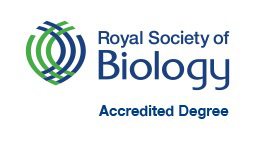Wildlife Conservation (with integrated year in industry) Code C184 Attend an Open Day Attend an Open Day
Apply NowKey Facts
C184-
UCAS Tariff
120 - 104
-
Course duration
4 years
Available for September start 2025
Further details on entry requirements
Apply NowIn an era of unprecedented global change, the need to conserve biodiversity has come to the forefront of both research and policy. Global biodiversity is facing a range of emerging threats, including climate change, habitat loss and fragmentation, and the introduction of invasive species. The BSc Wildlife Conservation degree at Aberystwyth University will equip you with an intimate understanding of the ecological concepts that underpin the conservation of flora, fauna and habitats on both local and global scales.
Course Overview
Modules September start - 2025
Please note: The modules listed below are those currently intended for delivery during the next academic year and may be subject to change. They are included here to give an indication of how the course is structured.
| Module Name | Module Code | Credit Value |
|---|---|---|
| Climate and Climate Change | BR16620 | 20 |
| Ecology and Conservation * | BR19320 | 20 |
| Genetics, Evolution and Diversity | BR17120 | 20 |
| Microbial and Plant Diversity * | BR19920 | 20 |
| Skills for Wildlife Scientists * | BR15720 | 20 |
Options
| Module Name | Module Code | Credit Value |
|---|---|---|
| Biological chemistry | BR17320 | 20 |
| Comparative Animal Physiology | BR16720 | 20 |
| Module Name | Module Code | Credit Value |
|---|---|---|
| An Introduction to Landscape Ecology and Geographic Information Systems | BR25520 | 20 |
| Marine Biology | BR22620 | 20 |
| Research Methods * | BR27520 | 20 |
| Wildlife Surveying | BR29620 | 20 |
Options
| Module Name | Module Code | Credit Value |
|---|---|---|
| Animal Behaviour | BR21620 | 20 |
| Climate Change: Plants, Animals and Ecosystems | BR21120 | 20 |
| Tropical Zoology Field Course | BR23820 | 20 |
| Module Name | Module Code | Credit Value |
|---|---|---|
| Integrated Year in Industry | BRS0060 | 60 |
| Module Name | Module Code | Credit Value |
|---|---|---|
| Global Biodiversity Conservation | BR33420 | 20 |
| Research Project * | BR36440 | 40 |
| Wildlife Conservation | BR34520 | 20 |
Options
| Module Name | Module Code | Credit Value |
|---|---|---|
| Animal Behaviour Field Course | BR34920 | 20 |
| Environmental Regulation and Consultancy | BR35620 | 20 |
| Freshwater Biology Field Course | BR37720 | 20 |
| Marine Biology Field Course | BR30020 | 20 |
| Population and Community Ecology | BR33920 | 20 |
| Sustainable Land Management | BR30420 | 20 |
| Terrestrial Ecology Fieldcourse | BR36620 | 20 |
* Also available partially or entirely through the medium of Welsh
Careers
Teaching & Learning
Typical Entry Requirements
UCAS Tariff 120 - 104
A Levels BBB-BCC with B in Biology
GCSE requirements (minimum grade C/4):
English or Welsh, Science and Mathematics
BTEC National Diploma:
DDD-DDM in a specified subject
International Baccalaureate:
30-28 with 5 points in Biology at Higher Level
European Baccalaureate:
75%-65% overall with 7 in Biology
English Language Requirements:
See our Undergraduate English Language Requirements for this course. Pre-sessional English Programmes are also available for students who do not meet our English Language Requirements.
Country Specific Entry Requirements:
International students whose qualification is not listed on this page, can check our Country Specific Entry Requirements for further information.
The University welcomes undergraduate applications from students studying the Access to Higher Education Diploma or T-level qualifications, provided that relevant subject content and learning outcomes are met. We are not able to accept Access to Higher Education Diplomas or T-levels as a general qualification for every undergraduate degree course.
Our inclusive admissions policy values breadth as well as depth of study. Applicants are selected on their own individual merits and offers can vary. If you would like to check the eligibility of your qualifications before submitting an application, please contact the Undergraduate Admissions Office for advice and guidance.

